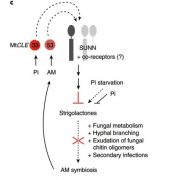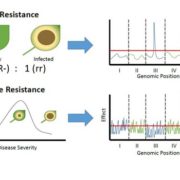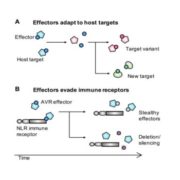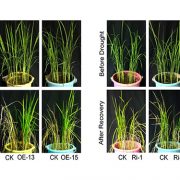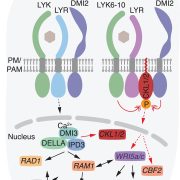Emergence of N-hydroxy-pipecolic acid as a key long-distance immunity signal in Arabidopsis
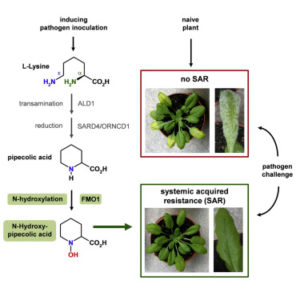 Systemic acquired resistance is a form of long-distance immunity employed by plants to protect distal uninfected tissues upon localized pathogen attack. Over the past two decades, a number of putative long-distance signals have been described as regulators of systemic immunity including the lysine catabolite pipecolic acid (Pip). Two recent studies expand on this knowledge (Chen et al. bioRxiv; Hartmann et al. Cell) by identifying Pip-derived N-hydroxy-pipecolic acid (NHP) as a specialized SAR metabolite that accumulates in distal tissues and primes plants for enhanced disease resistance. Importantly, both studies independently confirmed that the SAR regulator FMO1 (FLAVIN-DEPENDENT-MONOXYGENASE1) acts as a pipecolate N-hydroxylase that is essential for the production of NHP in planta during SAR. Together, these studies support the role of NHP as a key mobile immune regulator that is critical for the establishment of systemic disease resistance in plants. (Summary by Phil Carella) (Chen et al. bioRxiv ; Hartmann et al. Cell 10.1016/j.cell.2018.02.049).
Systemic acquired resistance is a form of long-distance immunity employed by plants to protect distal uninfected tissues upon localized pathogen attack. Over the past two decades, a number of putative long-distance signals have been described as regulators of systemic immunity including the lysine catabolite pipecolic acid (Pip). Two recent studies expand on this knowledge (Chen et al. bioRxiv; Hartmann et al. Cell) by identifying Pip-derived N-hydroxy-pipecolic acid (NHP) as a specialized SAR metabolite that accumulates in distal tissues and primes plants for enhanced disease resistance. Importantly, both studies independently confirmed that the SAR regulator FMO1 (FLAVIN-DEPENDENT-MONOXYGENASE1) acts as a pipecolate N-hydroxylase that is essential for the production of NHP in planta during SAR. Together, these studies support the role of NHP as a key mobile immune regulator that is critical for the establishment of systemic disease resistance in plants. (Summary by Phil Carella) (Chen et al. bioRxiv ; Hartmann et al. Cell 10.1016/j.cell.2018.02.049).


